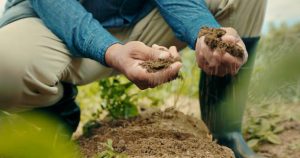One of the primary water sources in homes, industries, and institutions is rainwater. Normal rainwater is collected from roof surfaces or other characters and then directed to a specific container for storage. Rainwater is clean, but during the process of managing it. The water may be contaminated after picking dust, pollutants, debris, chemicals, and more. Therefore, collection rainwater may be passed through the purification process to make it clean. Rainwater can be used in several ways at home, in industries, farms, and more. In this article, we will take you through the uses of rainwater. Let’s dig in.
1. Used in cooking
This is one primary use of rainwater in our homes. Cooking is very crucial since many individuals need food to survive. Water is the main product used in cooking food at our homes. Rainwater can serve well in cooking since the water is clean and safe. Therefore, you can cook anything in your home using rainwater.
2. Drinking
Rainwater is wonderful for human consumption. The water is natural and free from chemicals that may be collected in the city. It depends on the method of collection, but the water is safe. This is one primary rainwater use that deserves to be on our list.

3. Used in irrigation
Raindrops are very beneficial to crops and plants. Therefore, it can also be stored for future use in farms to help with irrigation. If there is a rain shortage, the stored rainwater can be used in crops. Therefore, rainwater is of great benefit to plants. It will reduce the cost of buying water since it’s available naturally.
4. Bathing
It is recommended to take a shower at least once a day. Sometimes, water may become a big problem, but rainwater is available for free. You don’t need to buy it but make plans to collect it. The rainwater can be stored in tanks and used in baths. The water is clean and safe for you and is the primary use.
5. Laundry
This is another domestic use of rainwater. No doubt that washing clothes, bedding, and more are one primary domestic water use. Clothes can be washed using either treated or untreated rainwater. Rainwater that has not come into contact with other impurities is the best for laundry. In other words, the rainwater will easily combine with soap to create foam since it’s soft water.

6. Cooling machines
We have machines in industries as well as in farms and homes. Many machines depend on water for the cooling process. Examples of machines in our homes and farms that rely on water for cooling. They include tractors, cars, and more. Without water, those machines may not function well. Rainwater is excellent for cooling those machines. Rainwater is soft water which makes it a great option. It won’t stain your machine, unlike challenging water.
7. Cleaning house
Cleanliness is essential in our daily lives, and water has a significant role. We all need a clean environment or house to stay comfortably. You don’t need to be stressed up in a dirty house while there is rainwater. You won’t require to purchase the rainwater but collect it. You will reduce the expense of buying water for cleaning your house.
8. Building
The building is another use of rainwater. It doesn’t matter what you are building; you will need water. Water is one of the main requirements if you use cement or mud to make anything. If you are building a mud house or cement house, you’ll need water to mix things. Water is mixed with soil to make mud which is used in buildings.
Moreover, water is also Mixed with cement and sand to plaster houses, wall fences, and more. Making anything with cement requires regular watering in the first days to prevent cracking. Rainwater can be used in all those activities that involve building and construction.
9. Water for livestock and pets
As a Farmer rearing livestock, you know water’s importance to your animals. Animals need water so that they can be more productive. For example, cows, goats, and other animals producing milk require adequate water and food. This is important to Increase their milk production. Rainwater is safe and clean for your livestock, provided you collect well. Moreover, many people have pets in their homes, for example, cats, dogs, squirrels, rabbits, and more. All those pets require water to survive, and rainwater is a great option.
10. Fish pond refills
Fish ponds need fresh water. Rainwater is an excellent source of fresh water to refill fish ponds. You’ll have to collect and fill the water in your fish pond. Alternatively, you can direct the rainwater to your fish pond.
11. Swimming pool refills
Just like fish ponds, swimming pools also require fresh water regularly. You can direct the rainwater to your swimming pool or refill it with stored rainwater.

12. Washing vehicles and equipment
Vehicles and other equipment need to be cleaned after use. You can use rainwater to clean your car, farm tools, and more.
13. Composition
Water is a requirement in the composition of manure. When making manure, you’ll need to sprinkle water for it to decompose well. When making a compost pit, you can sprinkle your stored rainwater in it. However, you can also locate it where it’s raining, and the procedure will be done naturally.
14. Flushing toilets
Toilets need water to clean them as well as flush them. Without water, you won’t be able to use flush toilets. They require proper cleaning, and rainwater plays a significant role in maintaining cleanliness. You can collect and store the rainwater, then connect it to your flush toilet. Rainwater is a great backup; it’ll reduce the expense of buying water for your flash toilet.
15. Diluted with pesticides, acaricides, herbicides, and more
The Farmer’s nightmare is his crops being affected by pests. That’s where pesticides come to rescue their crops. Moreover, farmers also need acaricides to get rid of ticks, mites, and other animal pests. Some pesticides, herbicides, and acaricides need water to dilute them. For example, one may be given the products in Powder form, or others may necessarily require dilution. Rainwater can be used in the process of dilution.




